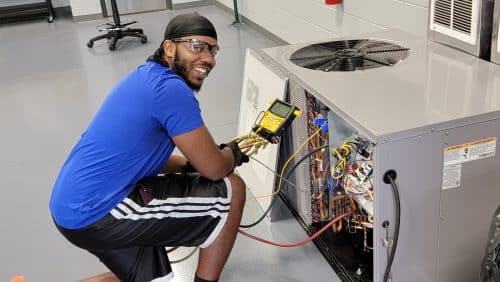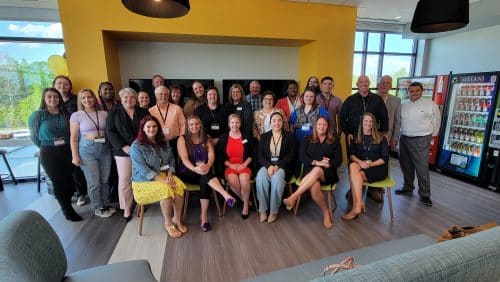
Communication Effectiveness
Communication Effectiveness
Understanding Yourself and Others: True Colors and Effective Communication
This workshop will take participants on a journey of self-exploration leading to self-awareness and awareness of others. Each participant will discover their own personality and learn to appreciate the personalities of others and to better communicate and work with them.
Objectives: Gain an awareness of self; gain an awareness of others; learn to communicate effectively with others; learn how to appreciate the diversity of personality styles around them.
Communication Strategies
For the better part of every day, we are communicating to and with others. Whether it’s the speech you deliver in the boardroom, the level of attention you give your spouse when they are talking to you, or the look you give the cat, it all means something.
The Communication Strategies workshop will help participants understand the different methods of communication and how to make the most of each of them. These strategies will provide a great benefit for any organization and its employees. They will trickle down throughout the organization and positively impact everyone involved.
Understand what communication is
- Identify ways that communication can happen
- Identify barriers to communication and how to overcome them
- Develop their non-verbal and Paraverbal communication skills
- Use the STAR method to speak on the spot
- Listen actively and effectively
- Ask good questions
- Use appreciative inquiry as a communication tool
- Adeptly converse and network with others
- Identify and mitigate precipitating factors
- Establish common ground with others
- Use “I” messages
Emotional Intelligence
Emotional intelligence describes the ability to understand one’s own feelings, and that of groups, and how these emotions can influence motivation and behavior. The concepts of Emotional Intelligence have been around since at least the 1900’s, but the term was first introduced by Wayne Payne in 1985.
As a result of the growing acknowledgement by professionals of the importance and relevance of emotions to work outcomes, the research on the topic continued to gain momentum, but it wasn’t until the publication of Daniel Goleman’s best seller Emotional Intelligence: Why It Can Matter More Than IQ that the term became widely accepted by mainstream media.
- Define and practice self-management, self-awareness, self-regulation, self-motivation, and empathy.
- Understand, use and manage your emotions.
- Verbally communicate with others.
- Successfully communicate with others in a non-verbal manner.
- Identify the benefits of emotional intelligence.
- Relate emotional intelligence to the workplace.
- Balance optimism and pessimism.
- Effectively impact others.
Conflict Resolution
Wherever two or more people come together, there is bound to be conflict. This course will give participants a seven-step conflict resolution process that they can use and modify to resolve conflict disputes of any size. Your participants will also be provided a set of skills in solution building and finding common ground.
In the Conflict Resolution workshop, participants will learn crucial conflict management skills, including dealing with anger and using the Agreement Frame. Dealing with conflict is important for every organization no matter what the size. If it is left unchecked or not resolved it can lead to lost production, absences, attrition, and even law suits.
- Understand what conflict and conflict resolution mean
- Understand all six phases of the conflict resolution process
- Understand the five main styles of conflict resolution
- Be able to adapt the process for all types of conflicts
- Be able to break out parts of the process and use those tools to prevent conflict
- Be able to use basic communication tools, such as the agreement frame and open questions
- Be able to use basic anger and stress management techniques
Interpersonal Skills
We’ve all met that dynamic, charismatic person that just has a way with others, and has a way of being remembered. Your participants will identify ways of creating a powerful introduction, remembering names, and managing situations when you’ve forgotten someone’s name.
The Interpersonal Skills workshop will help participants work towards being that unforgettable person by providing communication skills, negotiation techniques, tips on making an impact, and advice on networking and starting conversations. They will also identify the skills needed in starting a conversation, moving a conversation along, and progressing to higher levels of conversation.
- Understand the difference between hearing and listening
- Know some ways to improve the verbal skills of asking questions and communicating with power.
- Understand what ‘non-verbal communication’ is and how it can enhance interpersonal relationships.
- Identify the skills needed in starting a conversation.
- Identify ways of creating a powerful introduction, remembering names, and managing situations when you’ve forgotten someone’s name.
- Understand how seeing the other side can improve skills in influencing other people.
- Understand how the use of facts and emotions can help bring people to your side.
- Identify ways of sharing one’s opinions constructively.
- Learn tips in preparing for a negotiation, opening a negotiation, bargaining, and closing a negotiation.
- Learn tips in making an impact through powerful first impressions.
Civility in the Workplace
While a training program on workplace manners and courtesy may seem like overkill, the reality is: rudeness is an epidemic costing industry millions a year. Indeed, what society seems to be gaining in terms of both knowledge and technological advancement, it’s losing out on basic social values that directly impact the bottom line.
To address the growing problem of incivility in the work setting, this workshop introduces the concept of civility, its importance to a company, as well as its typical causes and effects. Skills needed to effectively practice civil behavior, as well as different ways organizations can systematize civility in the workplace will also be discussed. The benefits to Civility in the Workplace are countless and will pay off immensely in every aspect of your job.
- Define civility, understand its causes, and enumerate at least three of its behavioral indicators.
- Understand the costs of incivility, as well as the rewards of civility, within the workplace.
- Learn practical ways of practicing workplace etiquette.
- Learn the basic styles of conflict resolution.
- Learn skills in diagnosing the causes of uncivil behavior.
- Understand the role of forgiveness and conflict resolution.
- Understand the different elements of effective communication.
- Learn facilitative communication skills such as listening and appreciative inquiry.
- Learn specific interventions that can be utilized when there’s conflict within the workplace.
- Learn a recommended procedure for systematizing civil behavior within the workplace.
Delivering Constructive Criticism
Delivering Constructive Criticism is one of the most challenging things for anyone. Through this workshop your participants will gain valuable knowledge and skills that will assist them with this challenging task. When an employee commits an action that requires feedback or criticism it needs to be handled in a very specific way.
Constructive Criticism if done correctly will provide great benefits to your organization. It provides the ability for management to nullify problematic behaviors and develop well rounded and productive employees. Constructive feedback shows an employee that management cares about them and will invest time and effort into their careers.
- Understand when feedback should take place
- Learn how to prepare and plan to deliver constructive criticism
- Determine the appropriate atmosphere in which it should take place
- Identify the proper steps to be taken during the session
- Know how emotions and certain actions can negatively impact the effects of the session
- Recognize the importance of setting goals and the method used to set them
- Uncover the best techniques for following up with the employee after the session
Assertiveness and Self Confidence
Self-confident and assertiveness are two skills that are crucial for success in life. If you don’t feel worthy, and/or you don’t know how to express your self-worth when communicating with others, life can be very painful. These skills will provide opportunities and benefits to your participants in their professional and personal lives.
The Assertiveness and Self-Confidence workshop will give participants an understanding of what assertiveness and self-confidence each mean (in general and to them personally) and how to develop those feelings in their day-to-day lives. These skills will encompass many aspects of your participant’s lives and have a positive effect on all of them.
- Define assertiveness and self-confidence, and list the four styles of communication
- Describe the types of negative thinking, and how one can overcome negative thoughts
- Explain the difference between listening and hearing.
- Define the importance of goal setting, and practice setting SMART goals for assertive behavior
- Utilize methodologies for understanding your worth — and the use of positive self-talk
- List reasons why a pleasing appearance and body language are critical for creating a strong first impression
- Practice sending positive communications phrased as “I-Messages”
- Practice strategies for gaining positive outcomes in difficult interpersonal situations.
Coaching and Mentoring
You are in your office looking over your performance report and it happened again. Your low performing employee failed to meet quota this month even after you spoke with them about the importance of meeting goals. This employee has a great attitude and you know they can do better. You just do not know how to motivate them to reach the goal. Money used to work, but that has worn off. You are baffled and you know being frustrated makes matters worse. What do you do?
The Coaching and Mentoring focuses on how to better coach your employees to higher performance. Coaching is a process of relationship building and setting goals. How well you coach is related directly to how well you are able to foster a great working relationship with your employees through understanding them and strategic goal setting.
- Define coaching, mentoring and the GROW model.
- Identify and set appropriate goals using the SMART technique of goal setting.
- Identify the steps necessary in defining the current state or reality of your employee’s situation.
- Identify the steps in developing a finalized plan or wrapping it up and getting your employee motivated to accomplish those plans.
- Identify the benefits of building and fostering trust with your employee.
- Identify the steps in giving effective feedback while maintaining trust.
Knowledge Management
The Encarta Dictionary defines knowledge management as the organization of intellectual resources and information systems within a business environment. Sounds pretty simple, right? Take a moment, though, and think about all the information that each person has in their brain. That’s a lot of knowledge!
The Knowledge Management workshop will give participants the tools that they will need to begin implementing knowledge management in your organization, no matter what the size of the company or the budget. Wherever there are humans working together for one goal, there is knowledge to be harvested, stored, and dispensed as needed.
- Understand the basic concept of knowledge management (KM)
- Identify the do’s and don’ts of KM
- Identify the KM live cycle
- Identify the new KM paradigm
- Identify the KM models
- Understand how to build a KM rational for your company
- Understand how to customize KM definitions
- Identify the steps to implementing KM in your organization
- Identify tips for success
- Understand the advance topics in KM






